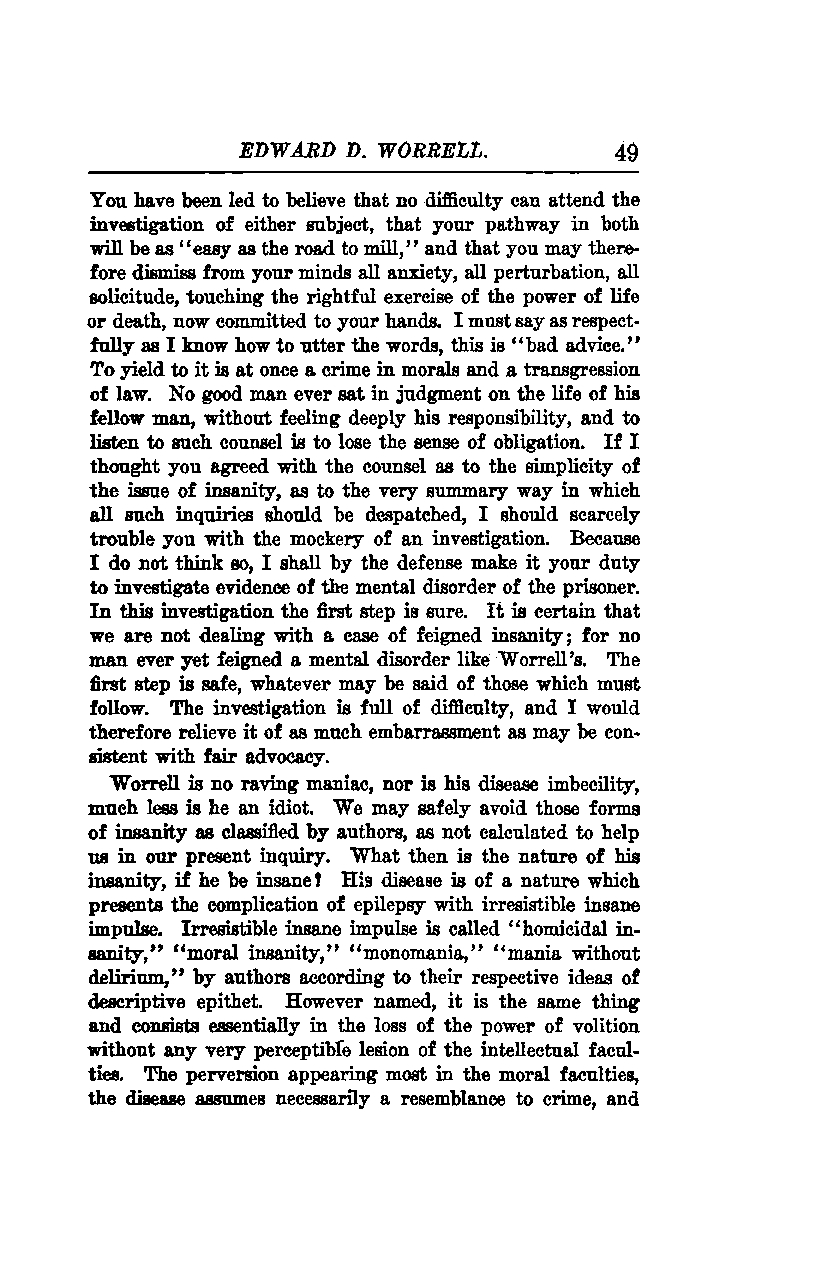
Here is the translated text as follows:
EDWARD D. WORRELL, 49
You have been led to believe that no difficulty can attend the investigation of either subject, that your pathway in both will be as "easy as the road to a mill," and that you may therefore dismiss from your minds all anxiety, all perturbation, all solicitude, touching the rightful exercise of the power of life or death, now committed to your hands. I must say, as respectfully as I know how to utter the words, this is "bad advice." To yield to it is at once a crime in morals and a transgression of law. No good man ever sat in judgment on the life of his fellow man without feeling deeply his responsibility, and to listen to such counsel is to lose the sense of obligation. If I thought you agreed with the counsel as to the simplicity of the issue of insanity, as to the very summary way in which all such inquiries should be dispatched, I should scarcely trouble you with the mockery of an investigation. Because I do not think so, I shall, by the defense, make it your duty to investigate evidence of the mental disorder of the prisoner.
In this investigation, the first step is sure. It is certain that we are not dealing with a case of feigned insanity; for no man ever yet feigned a mental disorder like Worrell's. The first step is safe, whatever may be said of those which must follow. The investigation is full of difficulty, and I would therefore relieve it of as much embarrassment as may be consistent with fair advocacy.
Worrell is no raving maniac, nor is his disease imbecility; much less is he an idiot. We may safely avoid those forms of insanity as classified by authors, as not calculated to help us in our present inquiry. What then is the nature of his insanity, if he be insane? His disease is of a nature which presents the complication of epilepsy with irresistible insane impulse. Irresistible insane impulse is called "homicidal insanity," "moral insanity," "monomania," "mania without delirium," by authors according to their respective ideas of descriptive epithet. However named, it is the same thing and consists essentially in the loss of the power of volition without any very perceptible lesion of the intellectual faculties. The perversion appearing most in the moral faculties, the disease assumes necessarily a resemblance to crime.
---